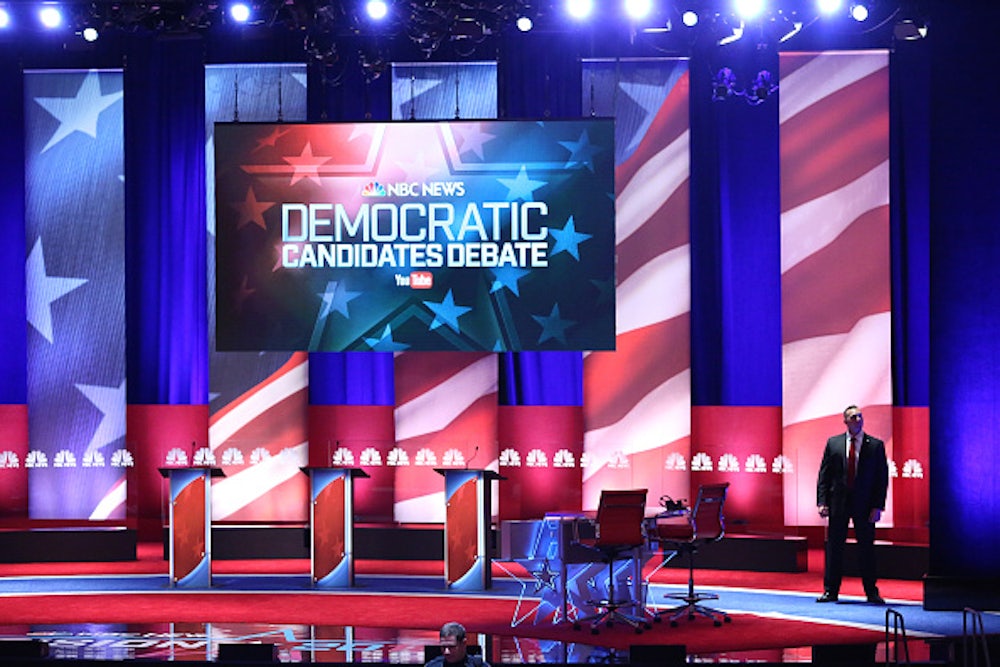Racial justice came up earlier on Sunday than it had in any of the previous three Democratic debates and was the subject of four consecutive questions, including the first meaningful contribution from YouTube we’ve gotten this primary season.
Perhaps that’s because NBC paid attention to criticisms of the inexcusable disconnect between the energy imbuing racial justice advocacy and the amount of attention it’s received in organized debate forums. Or perhaps, on the eve of Martin Luther King, Jr. Day, at an event being hosted by the Congressional Black Caucus Institute, in a city still roiling from the police shooting of Walter Scott and the Emanuel Church massacre, the issue was simply to blaring to ignore.
Either way, though, neither the moderators nor the candidates seemed interested in drawing real contrasts on criminal justice reform. In the most contentious Democratic debate so far, one of the most contentious issues in contemporary American politics remained a subject of vague consensus and lofty rhetoric. There were none of the specific, policy-driven disagreements that broke out during sometimes esoteric discussions on topics like healthcare and financial regulation. Priority was given chronologically, but the weight behind the ideas was still missing.
Two weeks ahead of the Iowa Caucuses, and the Democrats have yet to move beyond the performative phase of racial justice politics. At this point, it may be time to start wondering if they ever will.
